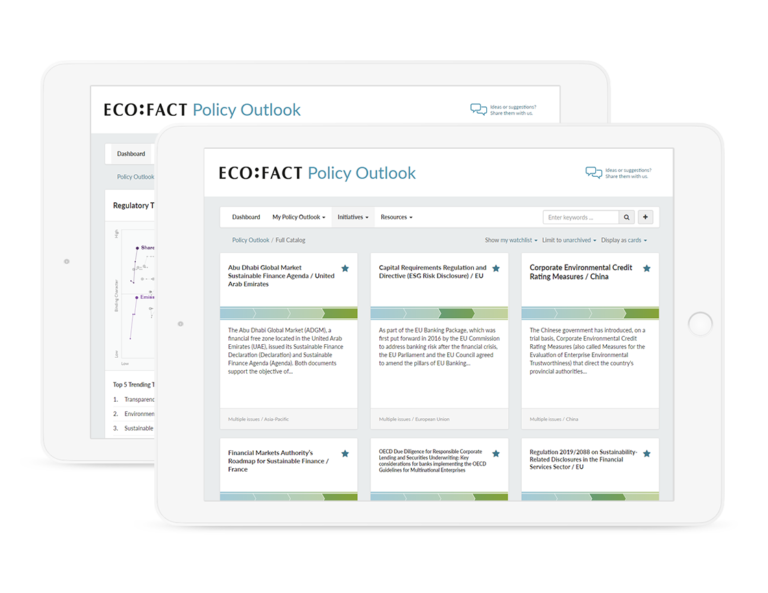What’s Next in the Regulatory Agenda Addressing Financial Institutions?
We have witnessed significant developments in the regulatory landscape with regard to sustainability and corporate responsibility issues in the last few months. The European Union, for instance, has issued long-awaited regulatory proposals that, once and for all, place ESG issues at the core of financial regulations. This achievement marks the beginning of a consolidation phase for certain issues that we at ECOFACT have closely monitored since the launch of the Policy Outlook in 2014. One of our main goals is to provide you with a constantly updated outlook on the key topics that are set to be at the top of the regulatory agenda regarding financial institutions.
According to the World Economic Forum Report, for a world economy in the 4th Industrial Revolution, financial regulations by 2030 will focus increasingly on issues related to cross-jurisdictional coordination to establish policies that address “algorithmic information processing, artificial intelligence, big data handling and vastly enhanced calculating and storage capacities, as well as widespread broadband internet access.”(1) Such a technological shift is expected not only to change the way in which financial institutions operate and do business, but also how sustainability and corporate responsibility regulations affect financial institutions.
In the next ten years, financial institutions will probably be expected to integrate measures in their due diligence processes to ensure that their actions related to the use or development of algorithms, artificial intelligence, and even blockchain technology do not negatively affect rights-holders and the environment. For example, they may be expected to ensure and demonstrate that their algorithm-based models and artificial intelligence systems do not embed discriminatory patterns(2) when determining the risk profile of transactions or selecting candidates to fill vacancies.
The path ahead is expected to be stormy and full of changes of direction, similarly to developments related to integrating ESG issues into disclosures and investment decisions. However, one thing is certain: In order to comply with current and future regulatory expectations in the areas of sustainability and corporate responsibility, financial institutions will have to integrate ESG considerations into their approach towards new technologies.
For professionals and institutions seeking to be ahead of the regulatory game and to save future compliance-related costs, we, therefore, suggest that they begin to:
i) follow/monitor discussions and debates addressing ESG and technology, so as to avoid surprises;
ii) discuss these issues internally and seek to raise awareness across all relevant units (business, IT, risk, public policy, compliance) – thus becoming thought leaders within their institutions and among peers;
iii) assess the option of adopting an institutional position and approach towards ESG and technology then communicate them to the relevant audience. This will help you to engage further with internal and external stakeholders, as well as to frame potential regulatory developments.
 All posts
All posts Contact
Contact



